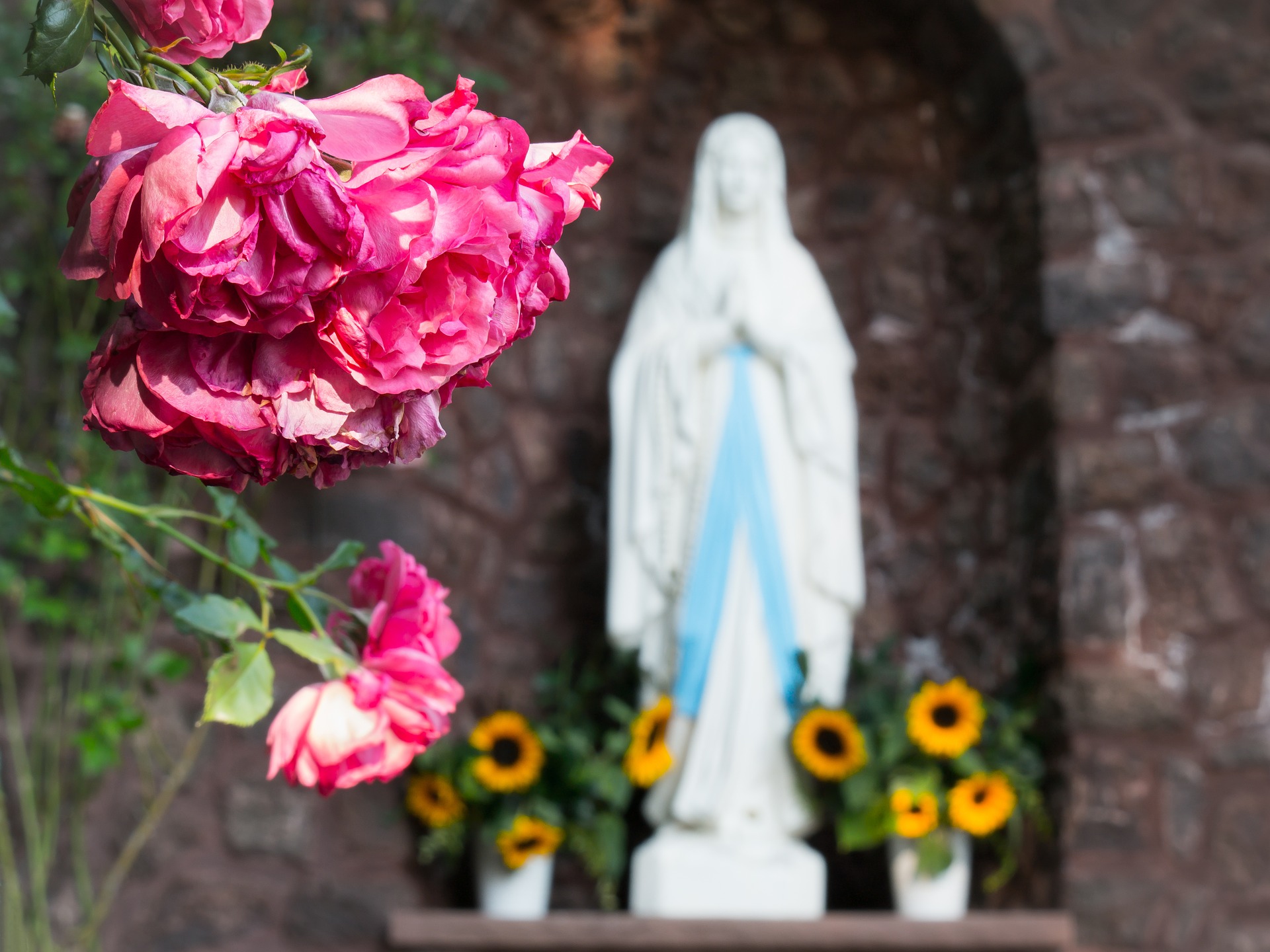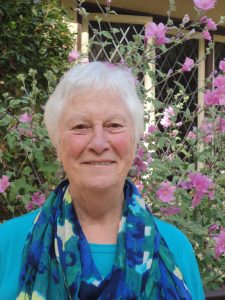- All
- Wisdom
- We Stand on Their Shoulders
- Vocation
- Uncategorized
- Stories Seldom Heard
- Spirituality
- Social Justice
- Prayer
- Peace
- Oneness
- Love
- Letting Go
- Lent
- Joy
- Inspirational Images
- Hope / Healing
- Holy Week
- Gratefulness
- God's Presence
- General News Stories
- Forgiveness
- Finding God
- Faith
- Easter
- Dominican Saints
- Discipleship
- Courage
- Christmas
- Catholic Sisters Week
- Care of the Earth
- Blessing
- Beauty
- Advent
- #justiceOPportunity
Stories Seldom Heard
Sr. Patricia Bruno, OP

246th Edition January 1, 2020
Feast of Mary, Mother of God
World Day of Prayer for Peace
 January 1st is the Feast of Mary: The Mother of God. Over the centuries many titles have been given to Mary: Morning Star; Our Lady of Sorrows; Our Lady of Lourdes; Our Lady of Guadalupe, which means the one who crushes serpents. Islam also has titles for Mary: She Who Believes; the Mother of the One who is Light. In the United States, we have 16 feast days that celebrate different aspects of Mary’s life. Even though the Second Vatican Council directed our attention in liturgical celebrations towards Jesus’ life, death and resurrection, many feast days of Mary continue to shape our devotional lives.
January 1st is the Feast of Mary: The Mother of God. Over the centuries many titles have been given to Mary: Morning Star; Our Lady of Sorrows; Our Lady of Lourdes; Our Lady of Guadalupe, which means the one who crushes serpents. Islam also has titles for Mary: She Who Believes; the Mother of the One who is Light. In the United States, we have 16 feast days that celebrate different aspects of Mary’s life. Even though the Second Vatican Council directed our attention in liturgical celebrations towards Jesus’ life, death and resurrection, many feast days of Mary continue to shape our devotional lives.
Mary, the Mother of God is the oldest title and feast day that celebrates the special place Mary has in our lives. The Byzantine and Syrian churches began celebrating this feast in the 6th century. They, however, chose December 26th to commemorate Mary, the Mother of God. Throughout history, this feast has been celebrated on different days. In more recent years, after the Second Vatican Council, January 1st became the designated date for this feast of Mary.
The feast occurs on the octave of Christmas which is a way of emphasizing her importance as the Mother of the Savior, the One who has become the bearer of blessing for the whole world. But this feast also offers us another invitation since it comes on the first day of the civil year. It’s as though, by placing this feast on January 1st, we are saying, look towards Mary. Mary’s life has something very important to teach us. The holiday parties and celebrations might have blurred our vision as to what Christmas really means, but this feast sets us straight once again. God became one with us to show us how divine we are. God became one with us to show us what love looks like. God became a human person to give us an unforgettable experience of unconditional love, not just for some of us, but for all of us.
Mary said “yes” to God’s invitation to physically birth God’s son into our world. Mary’s “yes” not only filled her life with mystery, but also directed her life on the road of suffering. Mystery, confusion, fear: “a sword will pierce your heart.” From the very beginning Mary knew the situation was far beyond her understanding. Dorothee Soelle, an author and theologian, calls the experiences that challenged Mary’s faith, the crucible in which Mary’s faith was forged (1).
During these times of suffering, Mary must have had many questions. Would she succumb to bitterness? Whom would her grief serve? Would she be strong enough to mentor Jesus through his grief to Divine courage? Peter Daino, a spiritual writer, asks these questions and uses a poetic image that helps us capture the importance of Mary’s many faithful “yeses”: “Just as with Mary’s answer to Gabriel,…the angels, the principalities, and the powers of heaven and earth awaited Mary’s decision with fear and hope” in the many difficult situations she faced throughout her life (2).
Mary, however, is not the only person who is invited to “birth” God into our world. Our “yeses” do not look the same as Mary’s, but “yes” is “yes”! This is what we have said by our baptism, confirmation, and continue to say in our Eucharistic celebrations, private prayers, devotions, our works of charity and justice, and the many other ways we proclaim Jesus as the One sent by God. Our “yes” is not Mary’s “yes”, but it is an important “yes” if Jesus is to be birthed into our world today. Meister Eckhart’s words are not just for the Christmas season. They call us to a way of life everyday and in every season:
What good is it to me, if this eternal birth of the Divine Son takes place unceasingly, but does not take place within me?
And what good is it to me if Mary is full of grace and if I am not also full of grace?
What good is it to me for the Creator to give birth to His/Her son if I do not also give birth to Him in my time and my culture?
This, then, is the fullness of time. When the Son of God is Begotten in us.
It sounds like a tall order to fulfill and it is. But, along with Mary we are not on our own to bring this mystery into being. This “birthing” is primarily God’s work. God promises to give us the grace, as God did for Mary, to help us live out our desire and vocation (call) to continually birth this Savior in our world in our time.
The first reading for Mass on January 1st helps us understand our calling. The reading is from the Hebrew scriptures, the First Testament, Old Testament. It is from the Book of Numbers 6:22 – 27. The beginning of Chapter 6 gives the rules for the Nazirite. A Nazirite is any woman or man consecrated to God for a limited period of time. Even though we do not call ourselves Nazirites, we too are dedicated to God. For most of us that decision was made by our parents at our baptism. Others of us made the decision for ourselves when we were older. But no matter who made the initial decision, each of us has made many personal choices throughout our lives that reaffirm and continue our commitment. There have been many big and small “yeses.” Like Mary, in times of mystery, confusion, fear, joy, and hope, we have rededicated our hearts and minds to God.
Num 6: 24 -26 is “the priestly blessing.” “May God bless you and keep you! May God’s face shine upon you, and be gracious to you! May God look kindly upon you and give you peace!” This ancient blessing is also given to us, for we too have been dedicated to God and we, too, are priestly people. At our baptisms we were anointed priests, prophets and kings (royalty). Thus, this is a two-fold blessing: as people dedicated to God, we receive the blessing and as priestly people, we are to offer this blessing to others.
This prayer sounds familiar to us. We have heard it often in church liturgies. We also hear echoes of it in the Irish Blessing and other familiar family prayers. It is a beautiful prayer that expresses God’s spirit of generosity and abundance. To say that God’s “face shines upon” us, is to say that God takes pleasure in us. God is pleased with God’s handiwork. Divinity loves us, dotes on us like a lover, a parent or a grandparent. God “favors” us and looks kindly on us with “graciousness.” In Hebrew, the word “gracious” identifies an attitude of total acceptance. It is the attitude that we are to show towards others, but especially towards the needy, the poor, the orphan, and anyone in distress. We, God’s people, are to “show favor to others by sparing them from punishment, by rendering assistance, by gifts”(3).
When this word is used for God, as it is in today’s reading, it reminds us of how God relates to us. God is gracious. God has spared us. Because we have experienced God’s graciousness, forgiveness, and freedom from punishment we have the strength to be forgiving and gracious to others. When this happens, we truly feel the “peace” announced in the first reading.
The Hebrew word for peace is “shalom.” It is difficult to define it in English with one word since “shalom” is rich with meaning and filled with content and nuances. It is an ordinary greeting, a wishing of goodwill, as well as a condition in which nothing is lacking. It is a gift from Yahweh and it is Yahweh. According to scripture, when someone possesses peace, that person is in union with God. The blessing we read in scripture today is a powerful prayer. When it is fulfilled in a person’s life, it has the power not only to change that person from the inside out, but also to change those with whom she/he associates.
I’m sure you have met or know persons who are filled with peace. Their very presence in a room changes the environment. Peace is powerful and those who act on behalf of peace are Godlike. Peace is something for which we pray every day in our own prayers, at the Eucharist and in our songs. It is something that we desire for ourselves and for the world. But are we willing to sacrifice for it?
I wonder what would happen if we said this prayer as a blessing for ourselves each morning this year when we first look at ourselves in the mirror? I wonder what would happen if we prayed this prayer for our spouse, our children and our neighbors each night when we turn out the lights or wake up in the middle of the night? I wonder what would happen if we prayed this blessing for “all” those we hear about in the news each day who are suffering? I wonder what changes would take place within us? Would we become more compassionate and more courageous so that we might address the injustices in our cities and nation? Would we become more peaceful and better peacemakers?
St. Theresa of Lisieux said it well: “Each small task of everyday life is part of the total harmony of the universe.”
- Dorothee Soelle, Suffering, Fortress Press, Philadelphia, 1975.
- Peter Daino, Mary: Mother of Sorrows, Mother of Defiance, Out of Print
- John McKenzie, SJ, Dictionary of the Bible, MacMillan Publishing Co., INC, New York. 1979. p. 324
“Stories Seldom Heard” is a monthly article written by Sister Patricia Bruno, OP. Sister is a Dominican Sister of San Rafael, California. This service is offered to the Christian community to enrich one’s personal and spiritual life. The articles can be used for individual or group reflection.
Special thanks to Mary Ellen Green, and Maria Hetherton who have helped in editing this article.
